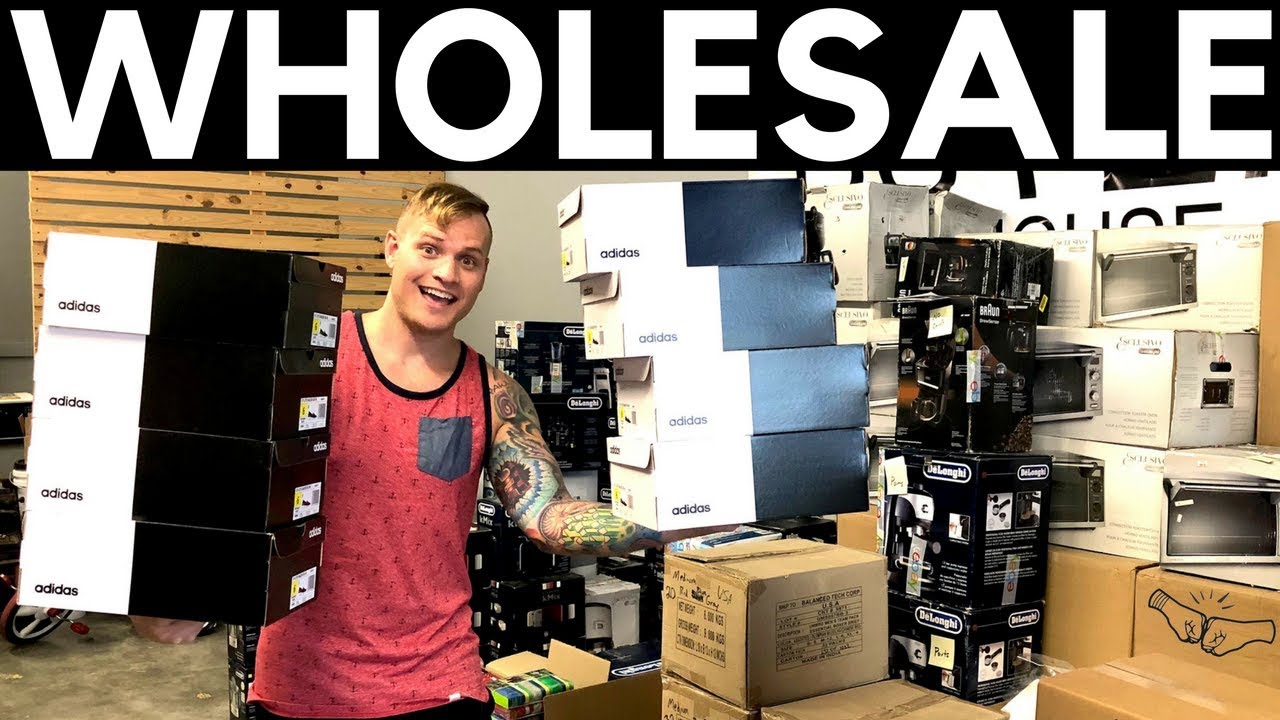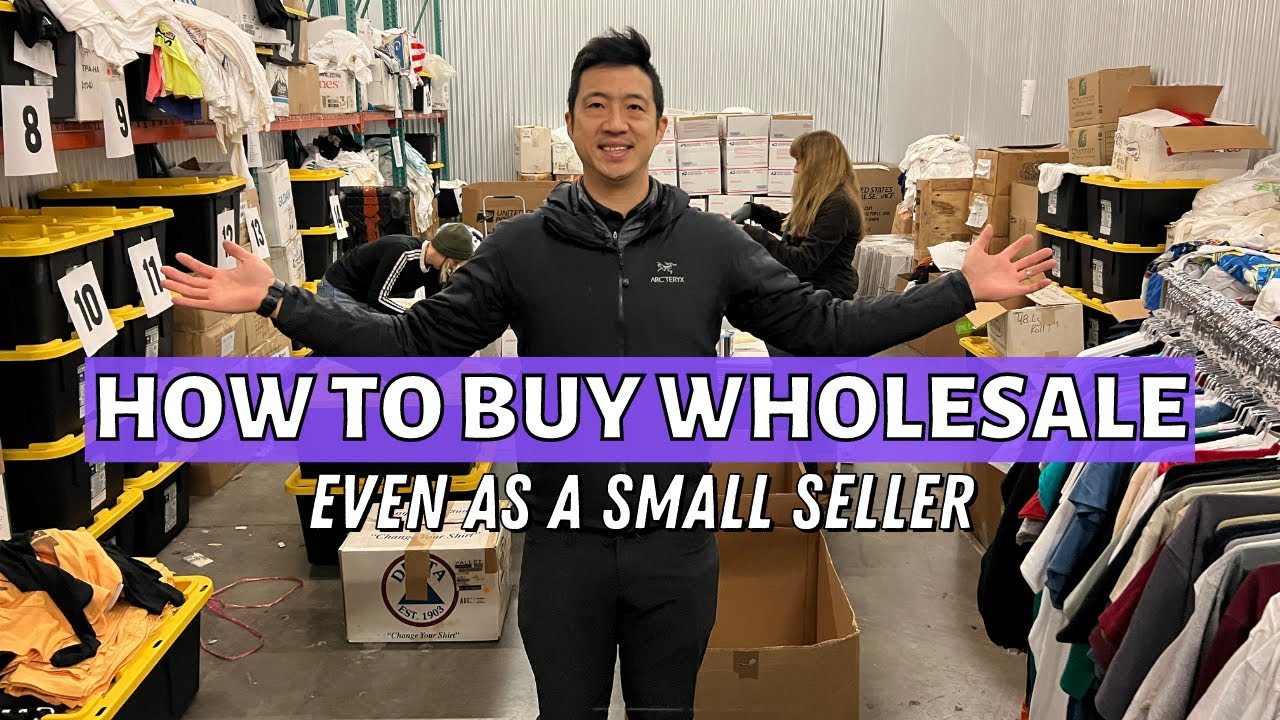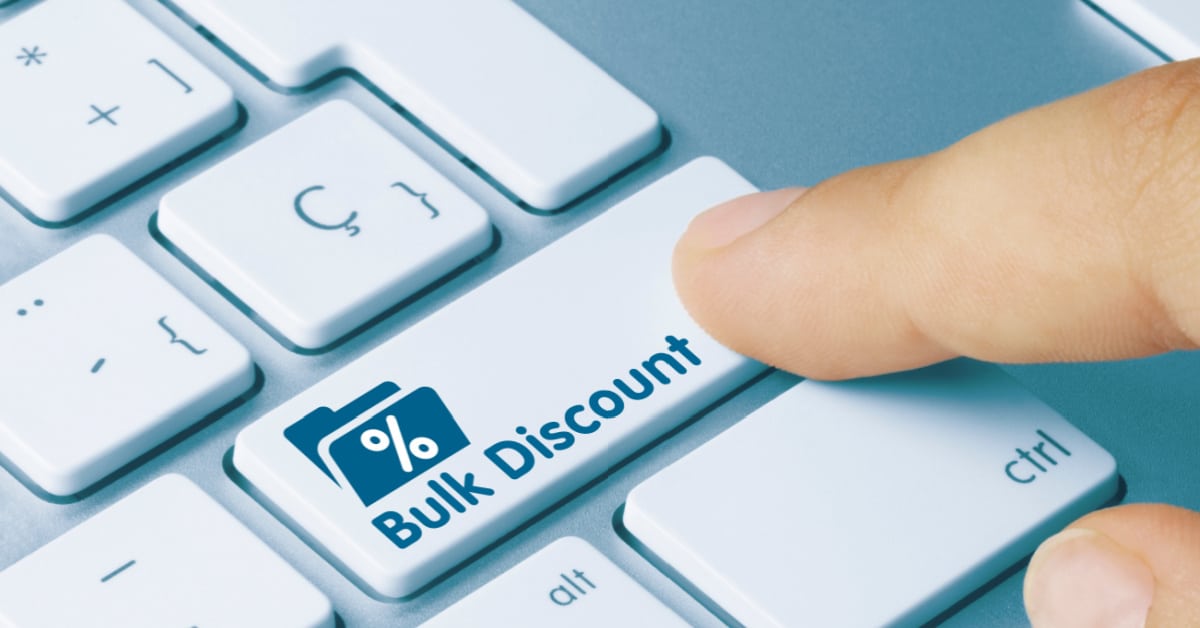The businessworld is a realm of constant innovation and strategies that determine success. Among the myriad approaches to entrepreneurship, one strategy has stood the test of time: "Buy in Bulk and Sell Individually." This businessmodel involves purchasing goods in large quantities at wholesale prices and then selling them individually at retail prices.
It's a simple yet effective concept that has proven to be a profitable venture for many savvy entrepreneurs. In this article, we will explore the advantages of this strategy, the challenges it presents, and practical tips for making it a successful endeavor.
The 12 Best Things To Buy In Bulk And Sell Individually

Buying Wholesale to sell on EBAY / AMAZON - Where to Find Products + Profit Breakdown | Ralli Roots
Buying in bulk and selling individually can be a lucrative business venture, but choosing the right products is crucial for success. Here are 12 of the best things to buy in bulk and sell individually:
- Electronics -Gadgets like smartphones, tablets, and accessories have consistent demand and can yield high-profit margins when bought in bulk from wholesalers.
- Beauty Products -Items such as skincare products, cosmetics, and hair care items are popular choices for bulk purchases, as customers frequently seek these products.
- Clothing and Accessories -Buying wholesale clothing, shoes, and accessories allows you to offer a diverse range of styles and sizes to cater to various customer preferences.
- Non-Perishable Food Items -Staples like rice, pasta, canned goods, and snacks have long shelf lives, making them ideal for bulk purchases and individual selling.
- Home and Kitchen Appliances -Items like blenders, coffee makers, and kitchen gadgets are in-demand products that can be sourced at lower prices when purchased in bulk.
- Pet Supplies -Pet owners consistently need supplies like pet food, toys, and grooming products, making this niche a reliable option for bulk purchases.
- Office and School Supplies -Items like pens, notebooks, and stationery are constantly in demand, making them suitable for bulk buying and selling throughout the year.
- Toys and Games -Sourcing toys and games in bulk can be especially profitable during holiday seasons and special occasions.
- Fitness Equipment -With a growing interest in health and fitness, gym equipment and accessories can be lucrative products when purchased in bulk.
- Home Decor -Trendy and decorative items for homes, such as wall art, decorative pillows, and candles, can be sourced in bulk and sold individually for a profit.
- Party Supplies -Party decorations, tableware, and favors can be bought in bulk and sold individually for eventsand celebrations.
- Craft Supplies -Crafters and hobbyists often require supplies like yarn, beads, and art materials, making this category a potential niche for bulk purchasing and individual selling.
Before delving into any of these product categories, thorough market research is essential. Identifying the specific demands of your target market and understanding the competition will help you make informed decisions and increase the chances of success in your bulk buying and individual selling business.
Where To Buy Things In Bulk To Resell?

Buying Wholesale to Resell on EBAY / AMAZON - Where to Order Products Today
Finding reliable sources to buy things in bulk for resale is crucial for a successful business. Here are some places where you can explore purchasing products in bulk:
- Wholesale Suppliers -Wholesale suppliers are specifically established to cater to businesses that buy products in large quantities. You can find wholesalers for various industries and products, both online and offline.
- Trade Shows -Attending trade shows and industry-specific exhibitions allows you to connect with manufacturers and wholesalers directly. It's an excellent opportunity to negotiate deals and discover new products for resale.
- Online Wholesale Marketplaces - Several online platforms are dedicated to connecting buyers with wholesale sellers. Websites like Alibaba, Wholesale Central, and SaleHoo offer a vast array of products at wholesale prices.
- Manufacturers -Some manufacturers sell products directly to businesses at wholesale rates. Establishing a direct relationship with manufacturers can lead to better deals and customization options.
- Liquidation Sales -Liquidation sales and auctions are an excellent way to purchase surplus or overstocked items from retailers and wholesalers. You can often find products at significantly reduced prices.
- Local Distributors -Check if there are local distributors or warehouses that offer bulk quantities of products you are interested in. Buying locally can save on shipping costs and provide quicker access to inventory.
- Cooperatives and Buying Groups - Joining buying groups or cooperatives can allow you to pool resources with other businesses and buy in larger quantities at better rates.
- Online Marketplaces - In addition to wholesale platforms, popular online marketplaces like Amazon and eBay offer bulk purchasing options. Look for sellers offering bulk deals and discounts.
- Membership Clubs -Consider joining membership clubs like Costco or Sam's Club, where you can buy products in bulk at discounted prices.
- Direct Contact -Sometimes reaching out directly to manufacturers or brands and inquiring about bulk purchasing opportunities can lead to favorable deals.
Remember that while buying in bulk can offer cost savings, it's essential to research the suppliers' reliability and the quality of the products. Look for reputable sellers with positive reviews and track records of delivering quality items. Additionally, consider starting with smaller quantities before scaling up to assess the demand and ensure the products are well-received by your target market.
Is Selling In Bulk More Profitable? FAQ
Is Selling In Bulk More Profitable Than Selling Individually?
Selling in bulk can be more profitable in terms of cost savings and improved profit margins. When you buy products in large quantities at wholesale prices, the cost per unit decreases, allowing you to mark up the individual items' prices and still offer competitive rates compared to retail stores. This higher profit margin can lead to increased profitability for your business.
Are There Any Disadvantages To Selling In Bulk?
While selling in bulk can be advantageous, it also comes with certain challenges. Some of the disadvantages include the need for significant upfront investment to purchase large quantities of products, the requirement for ample storage space, and potential risks associated with holding excess inventory. Additionally, if the demand for certain products fluctuates or if market trends change, you may be left with surplus items that could affect your profitability.
What Types Of Businesses Benefit The Most From Selling In Bulk?
Businesses that can benefit the most from selling in bulk are those that have a steady and consistent demand for their products. Retailers, wholesalers, online sellers, and businesses that deal with non-perishable goods are examples of enterprises that can capitalize on the cost savings and increased profit margins of selling in bulk.
How Can I Find Products To Sell In Bulk?
To find products to sell in bulk, consider researching wholesale suppliers, attending trade shows and industry exhibitions, exploring online wholesale marketplaces, and establishing direct relationships with manufacturers. Additionally, look for liquidation sales, auctions, and membership clubs that offer bulk purchasing options.
Should I Offer Discounts For Bulk Purchases To My Customers?
Offering discounts for bulk purchases can be an effective strategy to incentivize larger orders from your customers. Bulk discounts can encourage them to buy more items at once, which can help improve their cash flow and reduce inventory holding costs. However, ensure that the discounts you offer still allow for a reasonable profit margin on the sales.
How Do I Manage Inventory When Selling In Bulk?
Efficient inventory management is crucial when selling in bulk. Invest in inventory management software that can help you track stock levels, monitor sales trends, and set reorder points. Regularly review your inventory turnover rates and adjust your purchasing strategy accordingly to avoid overstock or stockout situations.
Can I Combine Selling In Bulk With Selling Individual Items?
Yes, many businesses successfully combine selling in bulk with selling individual items. This approach allows you to cater to a broader range of customers and adapt to various purchasing preferences. By offering both bulk and individual options, you can maximize your revenue potential and increase customer satisfaction.
Are There Any Legal Considerations When Selling In Bulk?
When selling in bulk, it's essential to comply with all relevant laws and regulations concerning product safety, labeling, and packaging. Ensure that you have clear terms and conditions for bulk orders and communicate them transparently to your customers. If you're dealing with specific product categories (e.g., food, electronics, or health-related items), be aware of any industry-specific regulations that apply to your business. Consulting with legal and regulatory experts can help you navigate any potential legal considerations.
What Is The Best Rate To Bulk? FAQ
What Does "the Best Rate To Bulk" Mean?
"The best rate to bulk" typically refers to the most advantageous price per unit or discount offered when purchasing products in bulk quantities. It's the rate at which buying in larger quantities becomes more cost-effective than buying individual items.
How Do I Determine The Best Rate To Bulk For My Business?
To determine the best rate to bulk for your business, compare the wholesale price of products when purchased in bulk to their individual retail prices. Calculate the cost savings per unit for bulk purchases and analyze how it affects your profit margins. Consider factors like shipping and storage costs, demand forecasting, and potential risks associated with holding excess inventory.
Should I Always Aim For The Highest Discount When Buying In Bulk?
Not necessarily. While a higher discount may seem appealing, it's crucial to strike a balance between the discount rate and the overall demand for the products you're buying. Excessively large bulk purchases could lead to overstock situations or tie-up capital, which might not be beneficial in the long run. Aim for a discount that provides a significant cost advantage while aligning with your business's capacity and customer demand.
Can I Negotiate For A Better Rate When Buying In Bulk?
Yes, negotiating for a better rate when buying in bulk is a common practice, especially when dealing directly with wholesalers or manufacturers. Many suppliers are open to negotiating prices, especially if you are a repeat customer or can guarantee substantial orders over time. Polite and respectful communication is essential during negotiations to build strong business relationships.
Should I Offer Different Bulk Rates For Different Quantities?
Offering different bulk rates for different quantities can be a strategic move to incentivize customers to purchase larger quantities. For example, you can provide a higher discount for bulk purchases exceeding a certain threshold, encouraging customers to increase their order size. Tailor your bulk rate tiers based on your product offerings and customers' purchasing behavior.
How Often Should I Review My Bulk Rates?
Regularly reviewing your bulk rates is essential to stay competitive and ensure your pricing strategy remains profitable. Consider reviewing your rates quarterly or annually, or whenever significant changes occur in your business or market conditions. Continuously monitoring the demand for your products, competition, and supplier costs will help you make informed decisions about your bulk rates.
Are There Any Risks Associated With Buying In Bulk At The Best Rate?
Buying in bulk carries certain risks, including the potential for excess inventory, storage challenges, and market fluctuations. Ensure that you've thoroughly researched the market demand for the products you're buying and have a solid inventory management plan in place to mitigate these risks.
Should I Consider Seasonal Variations When Setting My Bulk Rates?
Yes, seasonal variations should be taken into account when setting bulk rates. Some products may have higher demand during specific seasons or holidays. Consider adjusting your bulk rates or promotional offers accordingly to capitalize on seasonal demand and avoid excess inventory during off-peak times.
People Also Ask
What Are The Best Products To Buy In Bulk And Sell Individually?
The best products to buy in bulk and sell individually depend on various factors such as market demand, profit margins, and your target audience. Common examples include electronics, beauty products, clothing, and non-perishable food items.
How Can I Find Reputable Wholesalers For Buying In Bulk?
Finding reputable wholesalers can be done through online directories, trade shows, and industry-specific platforms. Researching reviews and ratings, contacting manufacturers directly, and seeking recommendations from other businesses can also help in identifying reliable wholesalers.
What Are The Advantages Of Buying In Bulk For A Small Business?
Buying in bulk offers cost savings, as wholesalers provide discounted prices for larger orders. Small businesses can benefit from improved profit margins, streamlined inventory management, and the ability to offer competitive retail prices to customers.
What Are The Risks Of Buying In Bulk And How To Mitigate Them?
Risks of buying in bulk include tied-up capital, storage challenges, and potential market fluctuations. To mitigate these risks, conduct thorough market research, start with smaller quantities, utilize efficient storage solutions, and diversify your product offerings to reduce reliance on single items.
How Can I Determine The Right Retail Prices After Buying In Bulk?
Determining retail prices involves considering factors such as wholesale cost, market demand, competition, and desired profit margins. Conducting competitor analysis, understanding customer pricing expectations, and calculating your overhead expenses will help in setting appropriate retail prices.
Conclusion
The "Buy in Bulk and Sell Individually" strategy has shown itself to be a robust and rewarding approach to business. Its cost-saving benefits, improved profit margins, and streamlined inventory management make it an appealing choice for entrepreneurs looking to maximize their returns. However, like any business model, it comes with its set of challenges, including upfront investment and market fluctuations. To thrive in this competitive landscape, careful planning, market research, and a customer-centric approach are essential.
Entrepreneurs embarking on this journey should embrace creativity, adaptability, and a commitment to offering value to their customers. By building strong supplier relationships, implementing efficient inventory management systems, and staying attuned to market trends, businesses can navigate the obstacles and capitalize on the opportunities that "Buy in Bulk and Sell Individually" presents. With the right mix of foresight and perseverance, this strategy has the potential to pave the way for long-term success and profitability in the dynamic world of commerce.

